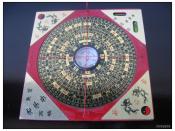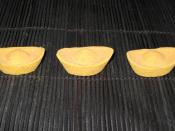The Asian Culture has many beliefs. The Chinese culture in particular believes the flow of energy and the maintenance of harmony and balance in the universe and in nature. This is the fundamental goal of a thousand's year old belief of Feng Shui. This may seem hard to do, but the Chinese believe that it is absolutely in our control. All living things, people, and the universe are all interrelated by cosmic energy also known as Chi. Very simply put, nothing happens without consequence to something else. We all have good days and bad days, but the belief behind Feng Shui is that it is possible to empower the energy around us and create positive changes in your life.
Feng Shui literally means wind and water. The Chinese people believed that all things came from either the wind or the water. The history of Feng Shui is at least 4,000 years ago; farmers in southern China developed certain Feng Shui principles because of their dependence on the earth and the forces governing it.
"They found that living in harmony with nature made life much easier, and they learned the hard way that upsetting the balance of their environment brought on disasters" (Largartee, 2-11).
"Feng Shui is not a fad, nor is it about religion, philosophy or superstition. Feng Shui is the art and science that unites time, space, people and the environment as one integral entity. Learning how to integrate Yin/Yang (opposite polarities) and the five elements; fire, earth, metal, water, and wood" (E-Zine 1).
According to Frank Wei, a Feng Shui specialist, he states, "The art of Feng Shui is all based on calculations." He shows us that the Chinese people developed a compass built in with astrological signs. He points out that Feng Shui is simply math and...


